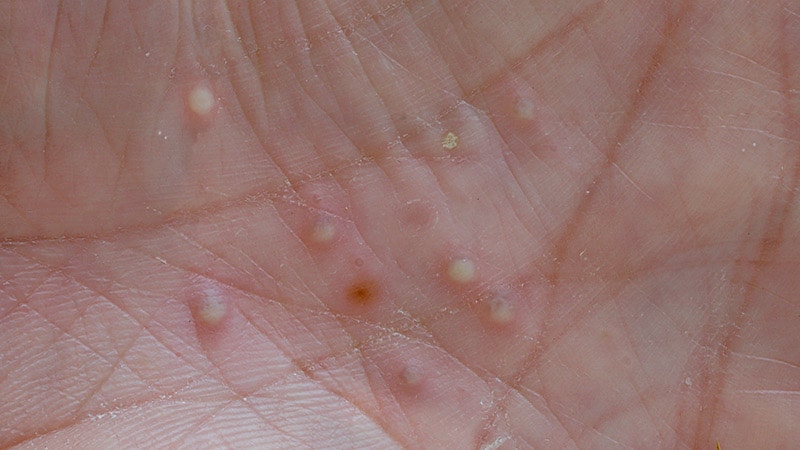TOPLINE:
A retrospective US claims study found that adults with generalized pustular psoriasis (GPP) had significantly more healthcare visits and costs than patients with plaque psoriasis alone.
METHODOLOGY:
- Researchers conducted a retrospective analysis of 633 adults with GPP between 2016 and 2019 in a US claims database, of whom 344 had comorbid plaque psoriasis and 289 had GPP alone.
- They also assessed an equal number of 633 matched patients with plaque psoriasis.
- Nearly 70% of the patients were women, 58.1% were aged 45-54 years, and 64.8% had commercial insurance. The median follow-up time ranged from 2.5 to 2.9 years.
- Study outcomes were healthcare utilization and costs.
TAKEAWAY:
- Patients with GPP demonstrated significantly higher median total visits than those with psoriasis alone (3 or 4 vs 2; P < .001), as well as increased outpatient/office visits (3 vs 2; P < .001) and laboratory use (2 vs 1; P < .05).
- Only patients with GPP had inpatient visits (34 patients) and ICU visits (1 patient); 12 patients with GPP vs 1 patient with psoriasis had emergency room visits only.
- Median total healthcare costs were $189 for all patients with GPP, $174 for those with GPP only, and $205 for those with GPP and psoriasis compared with $103 for those with psoriasis only (P < .001). Median outpatient/office costs were also higher for all patients with GPP ($180), those with GPP only ($168), and those with both GPP and psoriasis ($198) compared with those with psoriasis ($100; P < .001).
- Emergency room costs ranged from $58 to $1490 for 12 patients with GPP compared with $160 for 1 patient with plaque psoriasis.
IN PRACTICE:
The greater costs for healthcare resource utilization “and associated costs for GPP versus plaque psoriasis underscore the need for improved long-term management of GPP,” the study authors wrote. Studies should evaluate the impact of new treatments on utilization of healthcare resources related to GPP, they added, noting that patients with GPP “traditionally receive medications intended for plaque psoriasis, which lack evidence of effectiveness for GPP.”
SOURCE:
The study was led by Mark Lebwohl, MD, Department of Dermatology, Icahn School of Medicine at Mount Sinai, New York City, and was published online on July 24 in the Journal of the American Academy of Dermatology.
LIMITATIONS:
Possible miscoding in the claims database was a limitation, and the study period predated the FDA approval of spesolimab for treating GPP.
DISCLOSURES:
The study was funded by Boehringer Ingelheim. Lebwohl and two other authors disclosed receiving research funds, honoraria, and consulting fees from multiple pharmaceutical companies including AbbVie, Amgen, Arcutis, Avotres, and Boehringer Ingelheim. One author also reported receiving stock options from Connect Biopharma and Mindera Health and being editor in chief of the Journal of Psoriasis and Psoriatic Arthritis. Three authors are Boehringer Ingelheim employees.
This article was created using several editorial tools, including AI, as part of the process. Human editors reviewed this content before publication.
